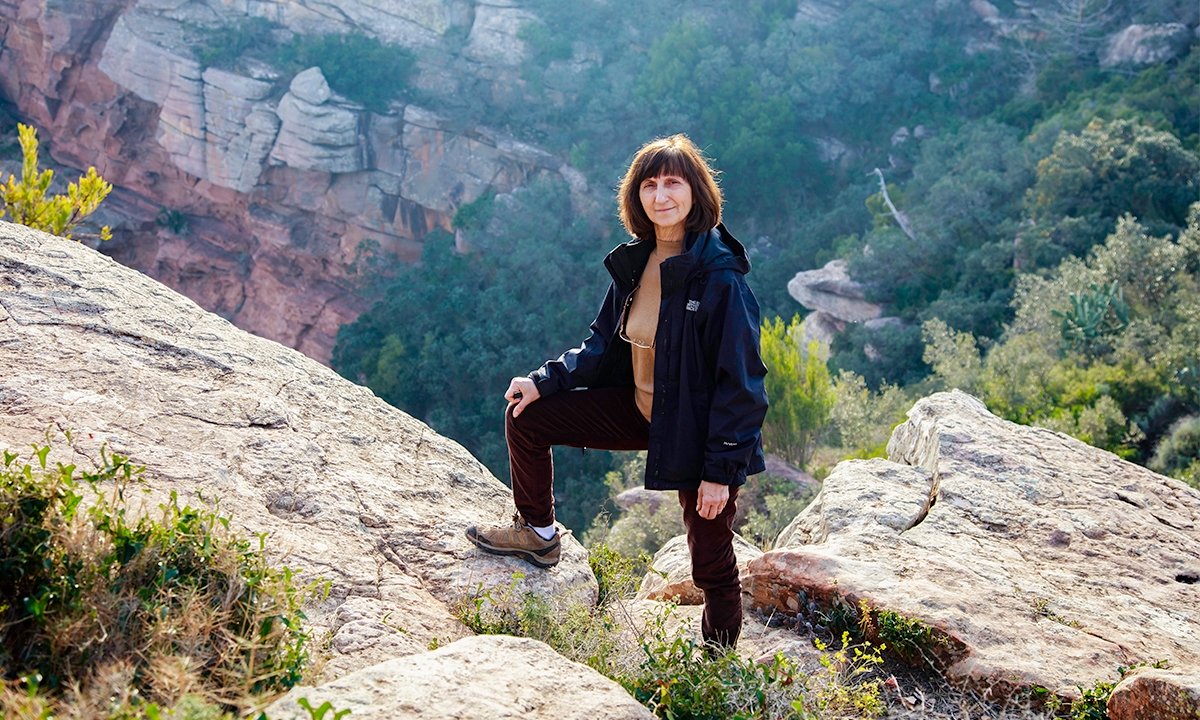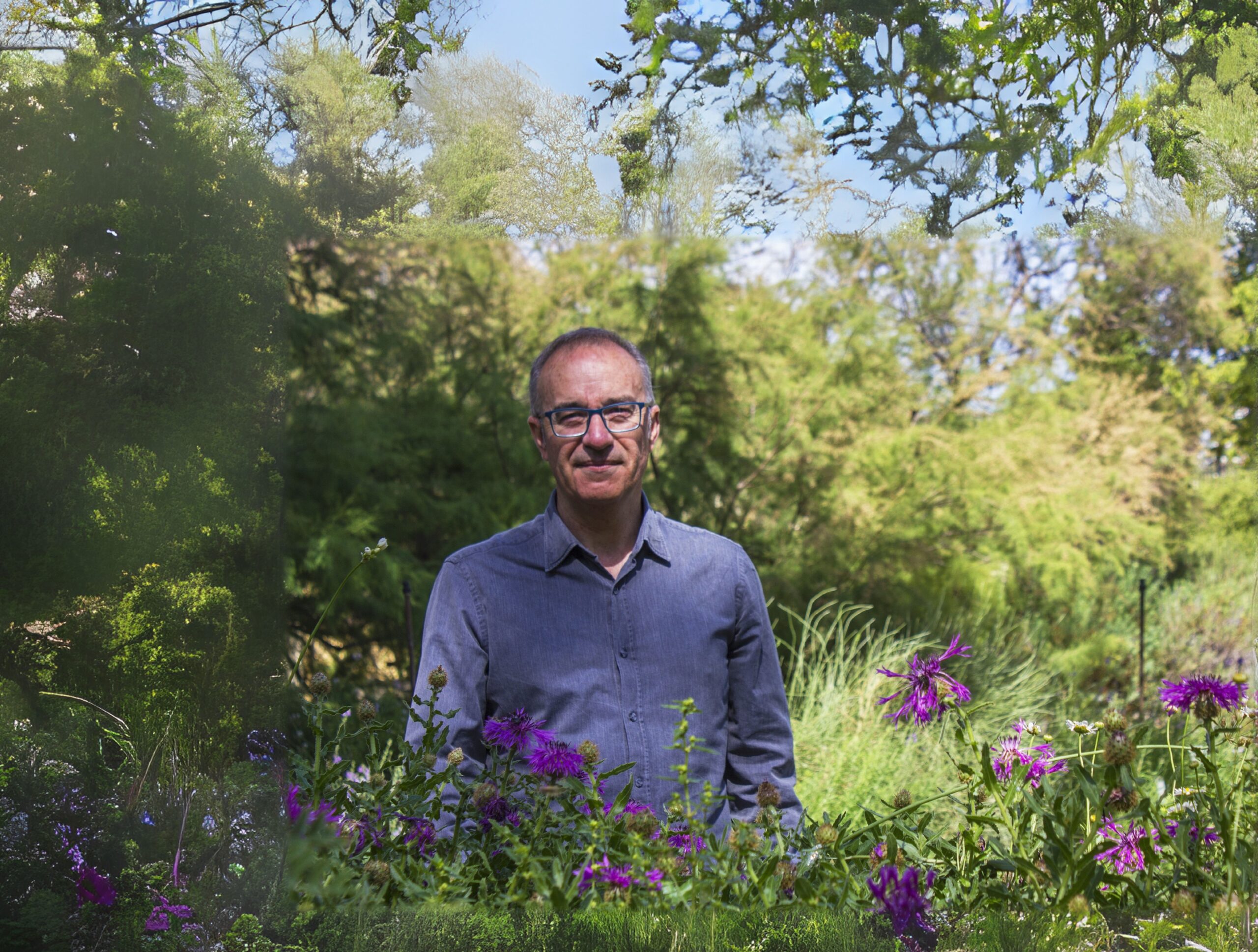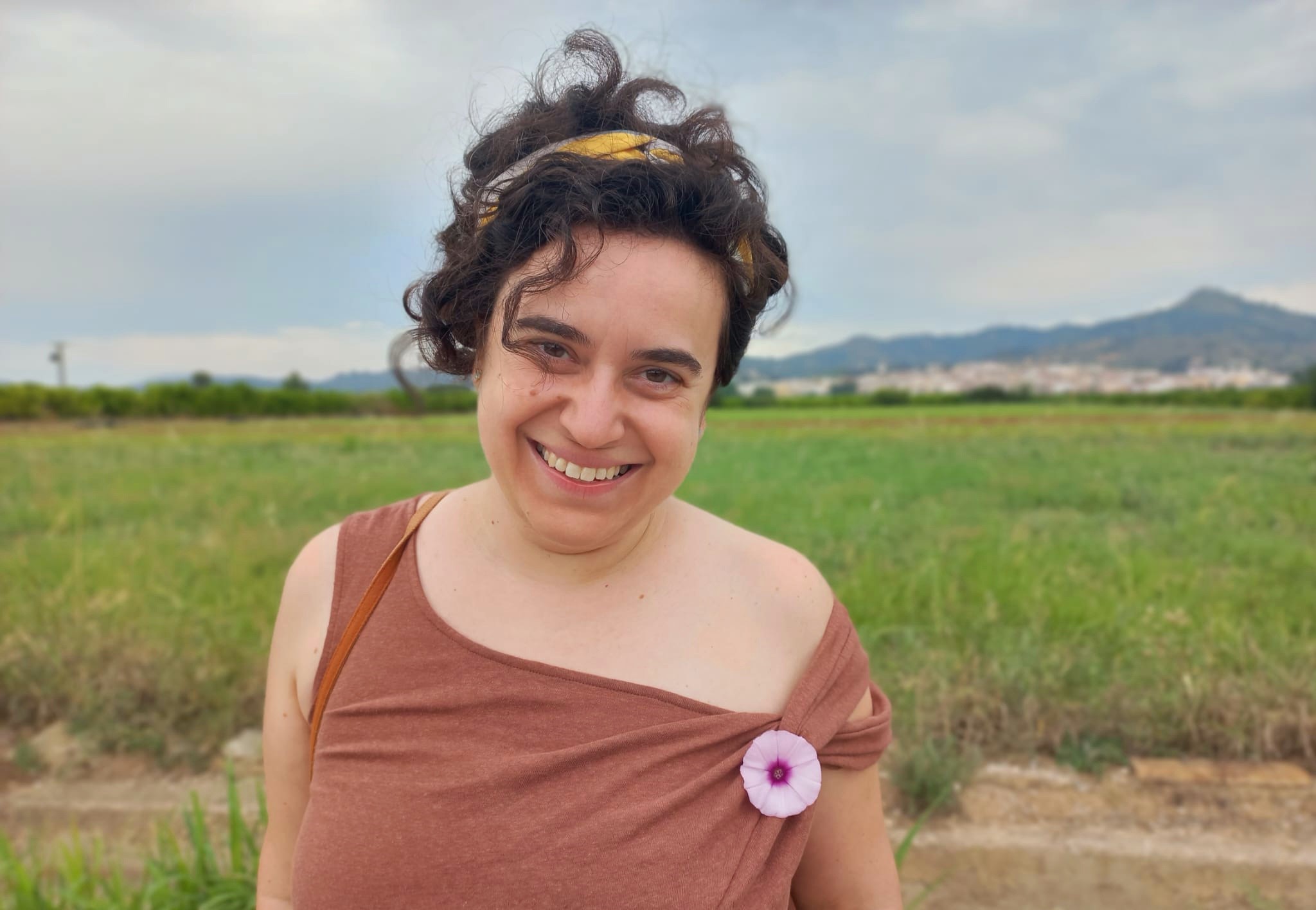Botanist of the month: Amparo Olivares
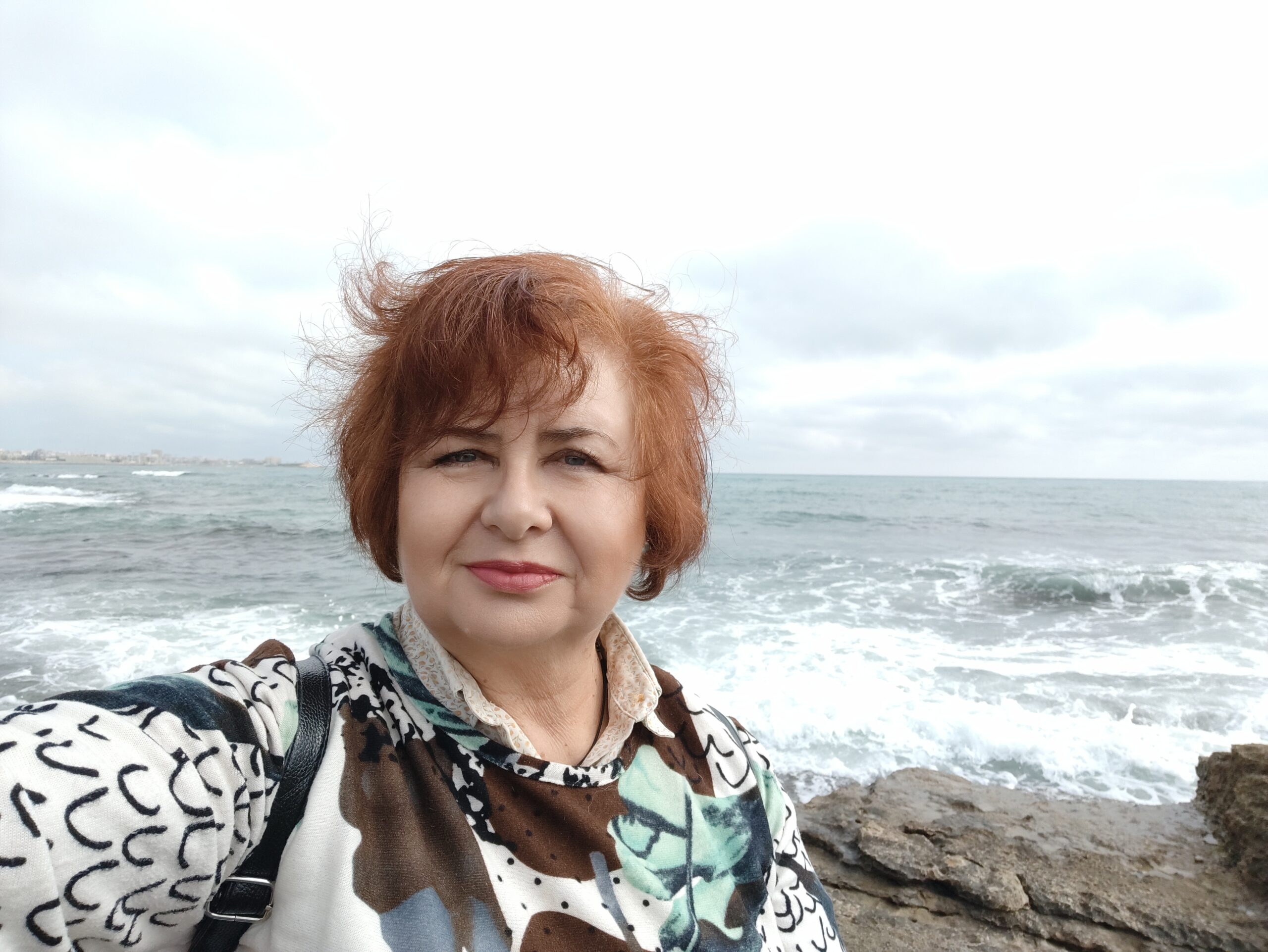
As a child she already had a passion for plants and was able to observe them closely from her home, the lighthouse in Canet de Berenguer, and this love was soon strengthened by her work in the Botany Department of the Faculty of Pharmacy and her choice of the speciality of plant ecology. During her long career she was a Natural Parks Technician for the Regional Ministry of the Environment, a lecturer at the Faculty of Biological Sciences, a Natura 2000 Network Technician and even discovered a new species for Valencian botany. Amparo Olivares, the first woman botanist who worked on the project for the Creation of the Flora Micro-reserves, is our Botanist of the month.
What did Botany appeal to you?
If you´ll pardon the joke, I think I was born a botanist. From a very young age I was fascinated by plants, I loved them. I was lucky that my father was a lighthouse keeper and we lived in the lighthouse of Canet d’en Berenguer. At that time everything was very wild, and I enjoyed the dunes of the beach like nobody else, with the native vegetation undisturbed and without the marina that exists today. The lighthouse had an enclosure around it and I had it all cultivated with plants that I collected from all over the place, rosemary, rudders, etc. I even planted a cork oak acorn and it grew perfectly, producing a beautiful cork tree. I also planted some yuccas which are still there today and which are taller than the roof of the lighthouse keeper’s house. Unfortunately the cork oak was removed. I studied pharmacy, and in my second year I was fascinated by the subject of botany, I enjoyed classifying plants and preparing the herbarium. So much so that I applied to be an intern in the Botany Department of the Faculty of Pharmacy, where I did a lot of work in histology, in the conservation of the department’s herbarium and in the iconography of the different publications that were produced. My teachers were Dr. Manuel Costa Talens and Dr. Julio Iranzo Reig, who influenced me so much that I chose to specialise in Plant Ecology. Needless to say, I obtained my best marks in Botany and Ecology with honours.
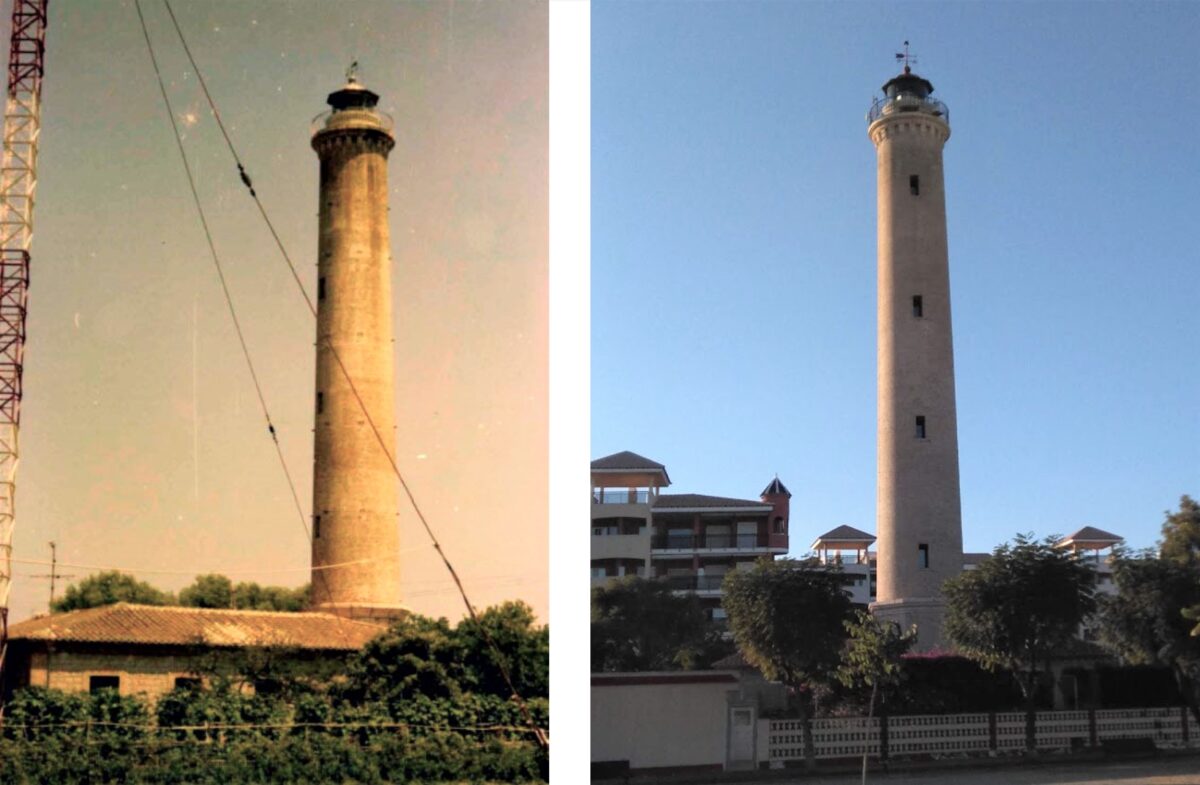
Could you summarise your professional career?
In 1986, as a 4th year pharmacy student and due to my great passion for the conservation of dune ecosystems, I was hired by the Coastal Demarcation of the Ministry of Public Works to carry out a project on the Conservation of the coast of the province of Valencia. After finishing my studies in Pharmacy, I was lucky enough to be hired by the Regional Ministry of the Environment as a Flora Microreserves Technician, in the pioneering Flora Microreserves programme directed by Dr. Emilio Laguna. In 2003 I defended my PhD entitled “Efecto de la Silvicultura Preventiva Contra Incendios sobre la Flora Rara, Endémica o Amenazada en la Provincia de Valencia” (“Effect of Preventive Fire Forestry on Rare, Endemic or Threatened Flora in the Province of Valencia”) with the qualification of Excellent Cum laude, directed by Dr. Miguel Guara of the Faculty of Biology. I then participated in the projects “LIFE for the Restoration of 17 Priority Habitats” and in the project “LIFE for High Mountain Habitats in Valencia”.
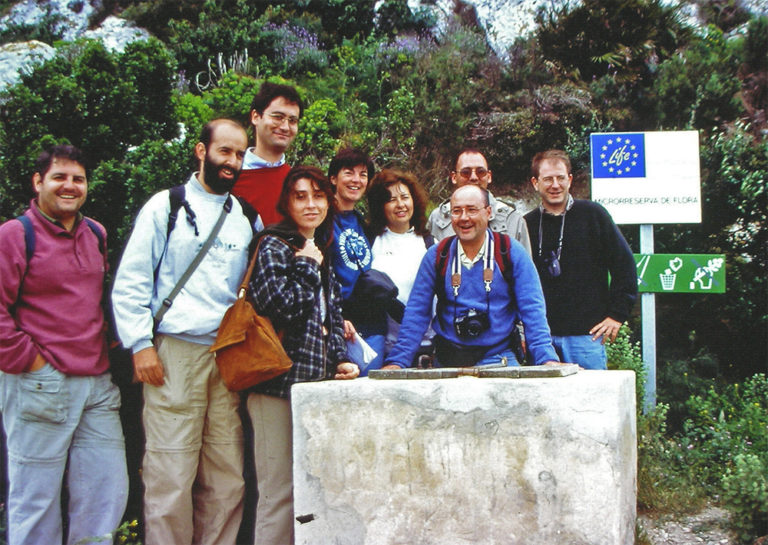
When the LIFE projects came to an end, in 2007 I started working as a Technician in Natural Parks for the Regional Ministry of the Environment. During those years I collaborated in various reports and interviews in the Environment programme of the Valencian Television. In 2008 I was an associate lecturer at the Faculty of Biological Sciences, teaching Botany in the 2nd year and practical classes in Plant Ecology in the 5th year of Biology. In 2020 I worked as a Forestry Foreman leading a brigade of women in the Alto Palancia region, where I learned very well the handling of the chainsaw and the importance of maintaining the management of our forests to prevent the dreaded fires that plague our mountains. I currently work as a Natura 2000 Network Technician in the Wildlife and Natura 2000 Network Service, in the General Directorate of Natural Environment and Environmental Assessment belonging to the Regional Ministry of Agriculture, Rural Development, Climate Emergency and Ecological Transition.
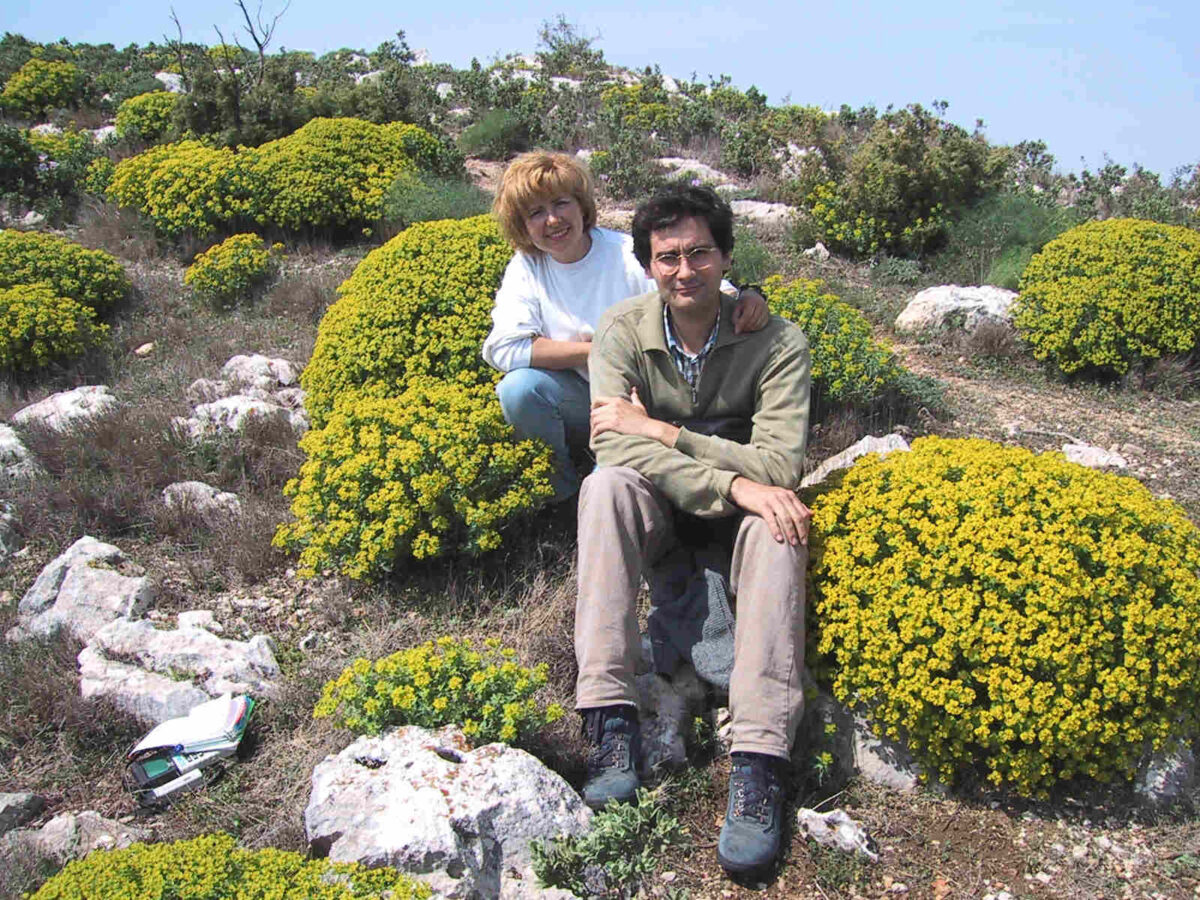
What does your professional day-to-day life consist of?
Currently, as a Natura 2000 Network Technician, my work is mainly the preparation of reports on projects, plans or programmes that may affect the protection figures of the Natura 2000 Network, i.e. if they affect Sites of Community Interest (SCI), Special Areas of Conservation (SAC) and Special Protection Areas for Birds (SPA). Especially if the projects affect species included in the Valencian Catalogue of Threatened Flora Species. I also collaborate with other services of the Valencian Regional Ministry with regard to the protection of protected flora. Likewise, I collaborate with the conservation of the Flora Micro-Reserves and the creation of some new ones.
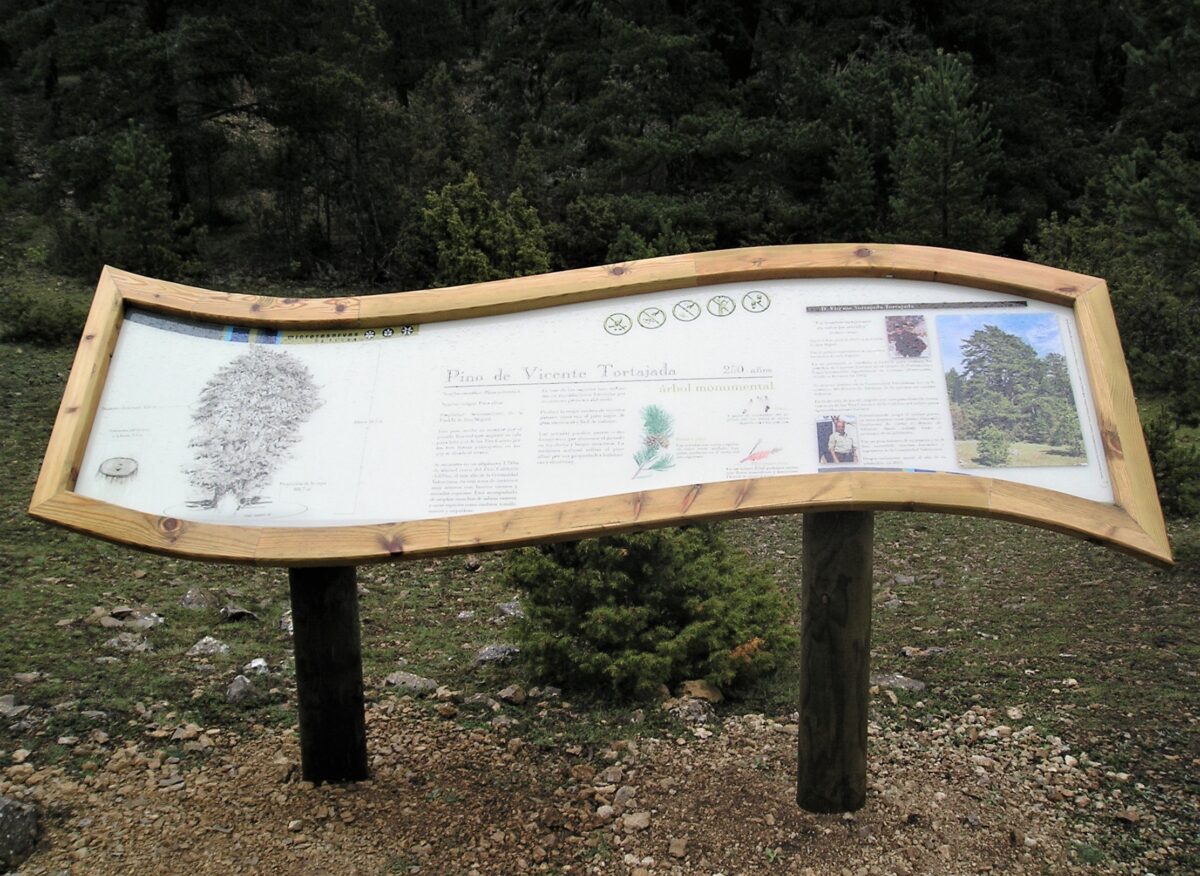
Are you proud to have been involved in a particular project or discovery?
Yes, I am proud to have discovered a new species for Valencian botany. I think it is the dream of every scientist. As a collaborator in the Department of Botany at the Faculty of Pharmacy, I worked on the conservation of flora, thanks to which I met Dr. Emilio Laguna of the Regional Ministry of the Environment, with whom I collaborated in carrying out flora censuses of some species in the National Catalogue of Threatened Species such as Diplotaxis ibicensis and it was thanks to this work that in 1994 I discovered a new species for botany, the exclusive Valencian endemism Cheirolophus lagunae, a species that my PhD directors (at that time) Dr. Gerardo Stübing, Dr. Juan Bautista Peris and myself dedicated to Dr. Emilio Laguna.
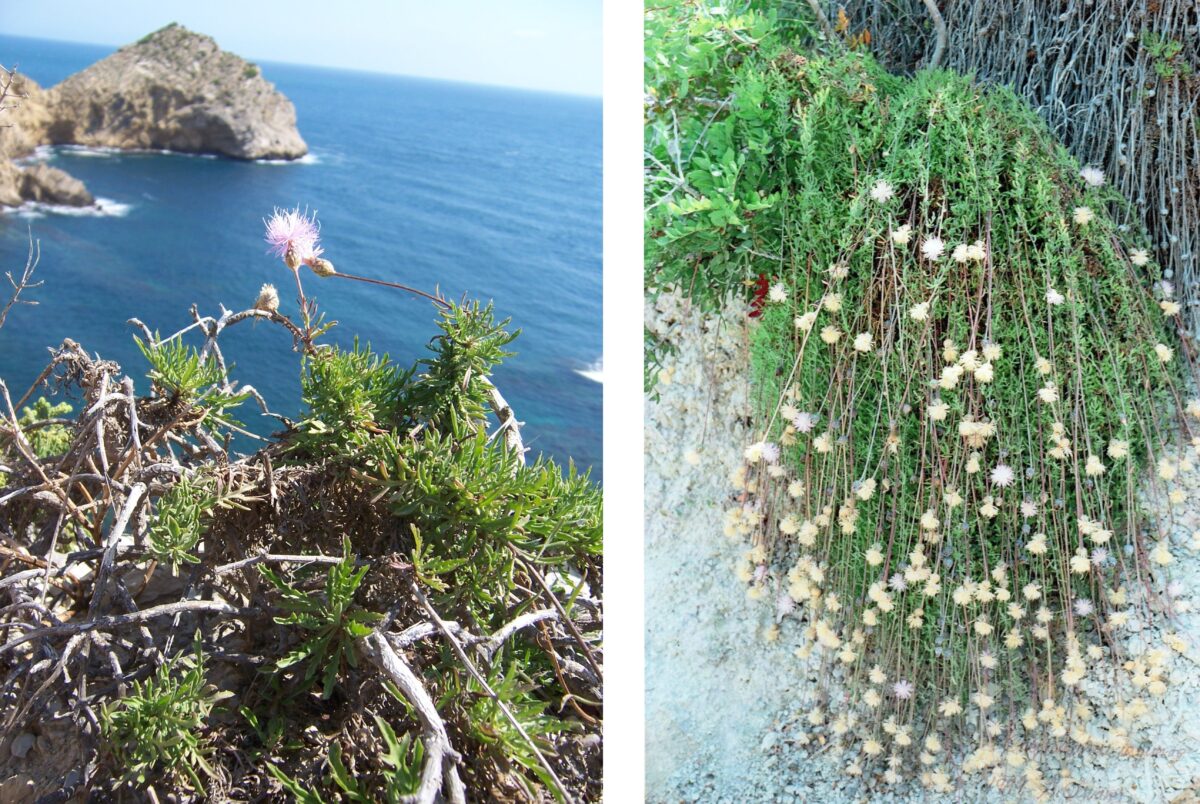
At the same time, I am very proud to have been the first woman botanist to work on the project to create the Flora Micro-reserves, which allowed me to increase my knowledge of rare, endemic or endangered flora throughout the Valencian Community. I also wrote the Guide to Freshwater Macrophytes from the Biodiversity Collection of the Generalitat Valenciana and collaborated in other books of the aforementioned collection.
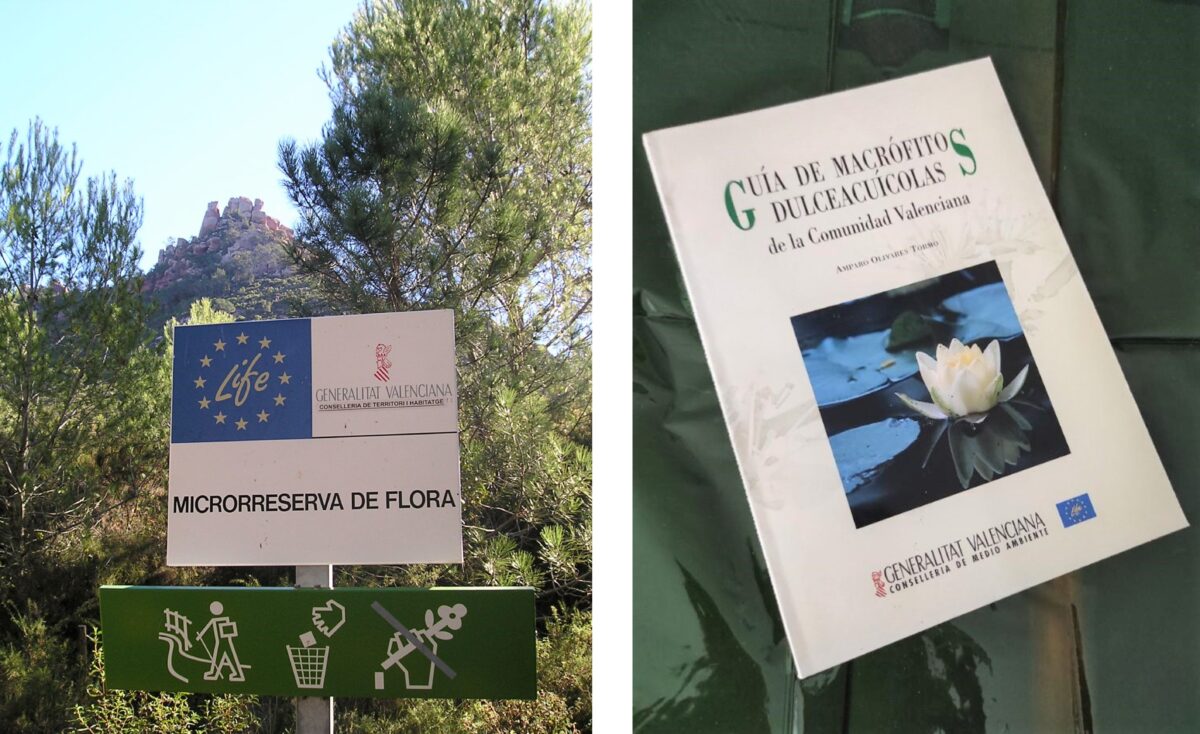
How important is this type of project for society at large?
Nowadays, it is very important to know our biodiversity in order to preserve it, because it forms part of our heritage and that of future generations. Moreover, thanks to the Flora Microreserves project, many species that were in danger of extinction have been recovered, and thanks to the great work of the entire flora team of the Regional Ministry, located in the Centre for Research and Forestry Experimentation (CIEF), conservation and seed germination protocols are being developed that have enabled the conservation of such unique species as the Cartagena Rockrose or Cistus heterophyllus subsp. carthaginensis, of which there was only one specimen.
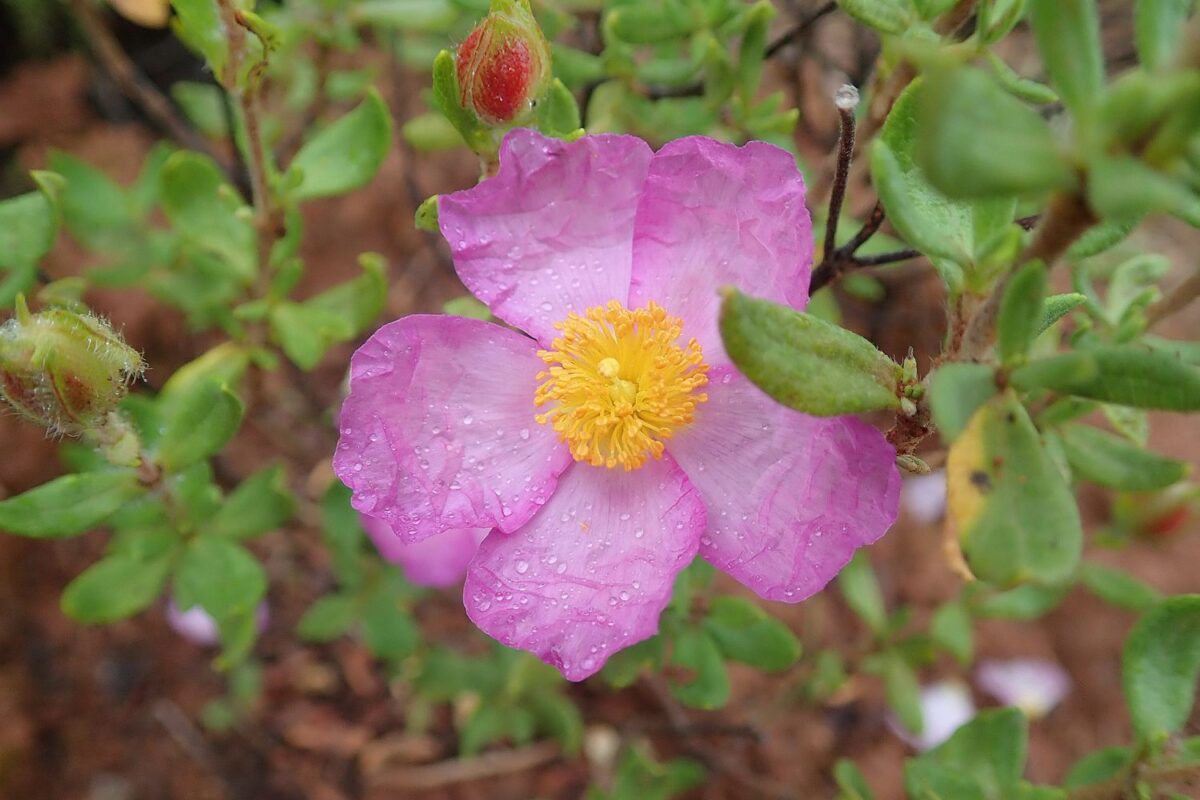
Have you met interesting people through your work?
Yes, fortunately I have met some very interesting people thanks to my work, even when I was a student. As a student I had the privilege and honour of being invited to the appointment as Doctor Honoris Causa by the University of Valencia of Dr. Severo Ochoa, Nobel Prize Winner in Physiology and Medicine. I was very young and realised that I was witnessing a historic moment in life. Later I met great researchers in botany and phytosociology such as Dr. Salvador Rivas Martínez who unfortunately left us in 2020. As well as Dr. Vernon Hilton Heywood, a great British botanist and researcher who passed away last year 2022.
Do you think that your work allows you to learn about subjects not related to Botany?
Of course, you learn something new every day and it is fascinating. Now in my job as a Natura 2000 Network Technician I am also learning a lot about wildlife issues, birds of prey, fish, amphibians etc. As well as invasive species that can damage our ecosystems.
What relationship do you have with the Jardí Botànic and its staff?
I have a great relationship with the Jardí Botànic as I have collaborated many times with its staff for the conservation of endangered species. When I was a Flora Micro-reserves Technician, we worked closely together to take samples and collect seeds for the germplasm bank. As for my relationship with the staff, it is very good, I have great friends in the Jardí, as many of them were colleagues of mine in my career, for example Dr. Elena Estrellés with whom I have a great friendship, as well as Dr. Ana Mª Ibars who was deputy director of the Jardí, my botany teacher and above all a great friend. And many more that I will not name because it would take too long.

How do you think your work has changed over the years?
My work has changed thanks to new technologies, mainly the Internet. Nowadays, the Cartographic Viewer of the Generalitat Valenciana is a fundamental tool in our work, as well as the Biodiversity Data Bank (BDB) of the Generalitat Valenciana.
How would you encourage current biology students to pursue the same career as you?
I would encourage them by saying that we need a generational change, that those of us who have been working on it for so many years are getting old and we need them to take up the mantle to continue preserving our Biodiversity. Above all, I would insist that they do not think that everything has already been discovered, because although we are in the 21st century, there are still many things to discover here in our community, in our country.
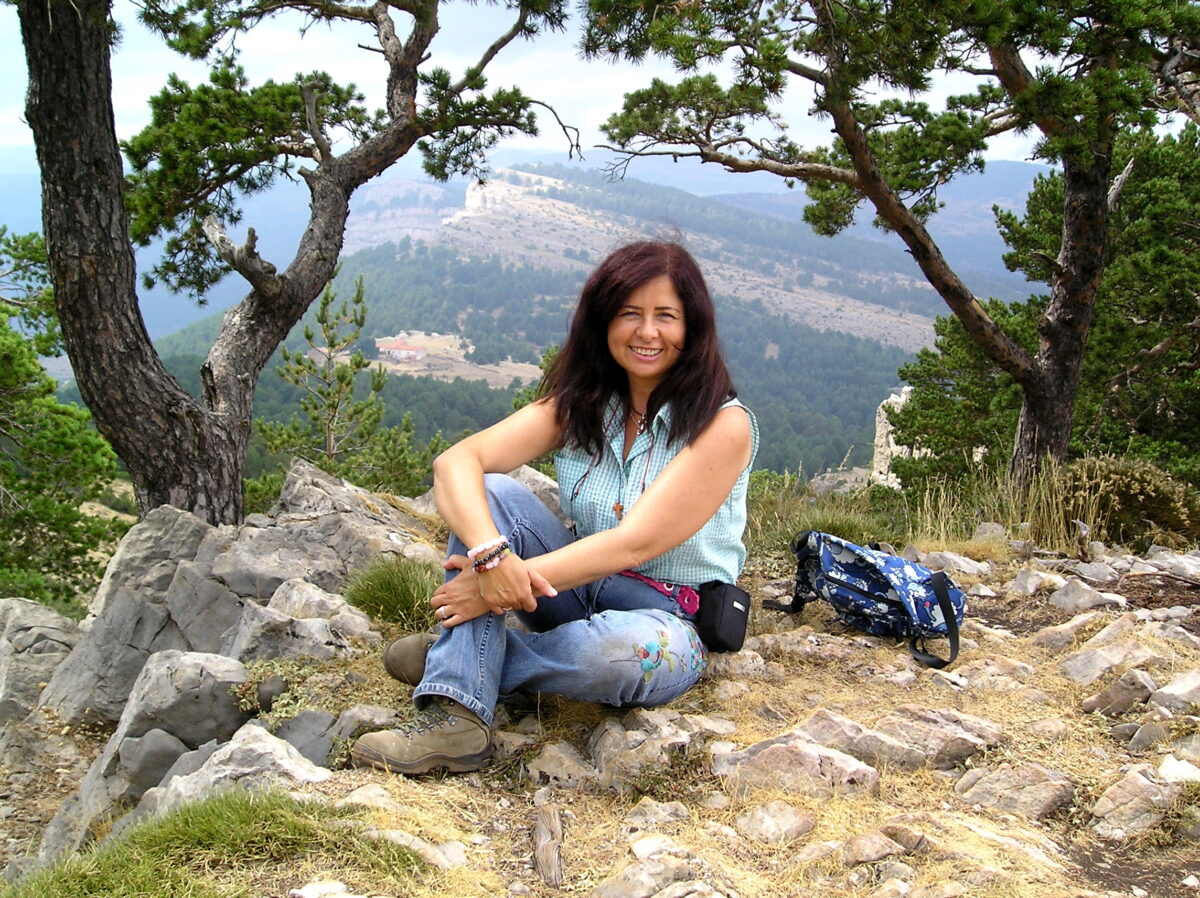
How would you assess the employment situation in the sector?
We are going through some difficult times, first the crisis, then the pandemic of the terrible COVID 19. But I am sure that little by little we will recover and job opportunities will improve.
What is your future in botany?
For the time being, the future is uncertain. Genetics now seems to be very fashionable and almost everything is identified by genetic analysis. But the classical botanist is needed, who, like Celestino Mutis, would go around with his magnifying glass looking at the characteristics of plants to differentiate the genus and species of a given specimen in the field. Thus, for example, at present, in the Pharmacy course, botany has become a four-monthly subject and Plant Ecology has disappeared as a speciality, remaining only in the Faculty of Science, and this is a real shame.
Imagine you have as much budget as you want. What would your work be like? What things would you improve?
This is the dream of every scholar and scientist. If I had all the budget I wanted, I would set up laboratories with different lines of research. There are still many things to research that cannot be done due to lack of means. I would employ new researchers fresh out of university so that they could gain a solid grounding in their knowledge and thus train true research professionals, and avoid the terrible brain drain that we are suffering because we are not giving our young people a chance. Above all, I would improve the facilities, something as simple as having some lockers where the biodiversity brigades that we have in the Generalitat, for example, could be changed.
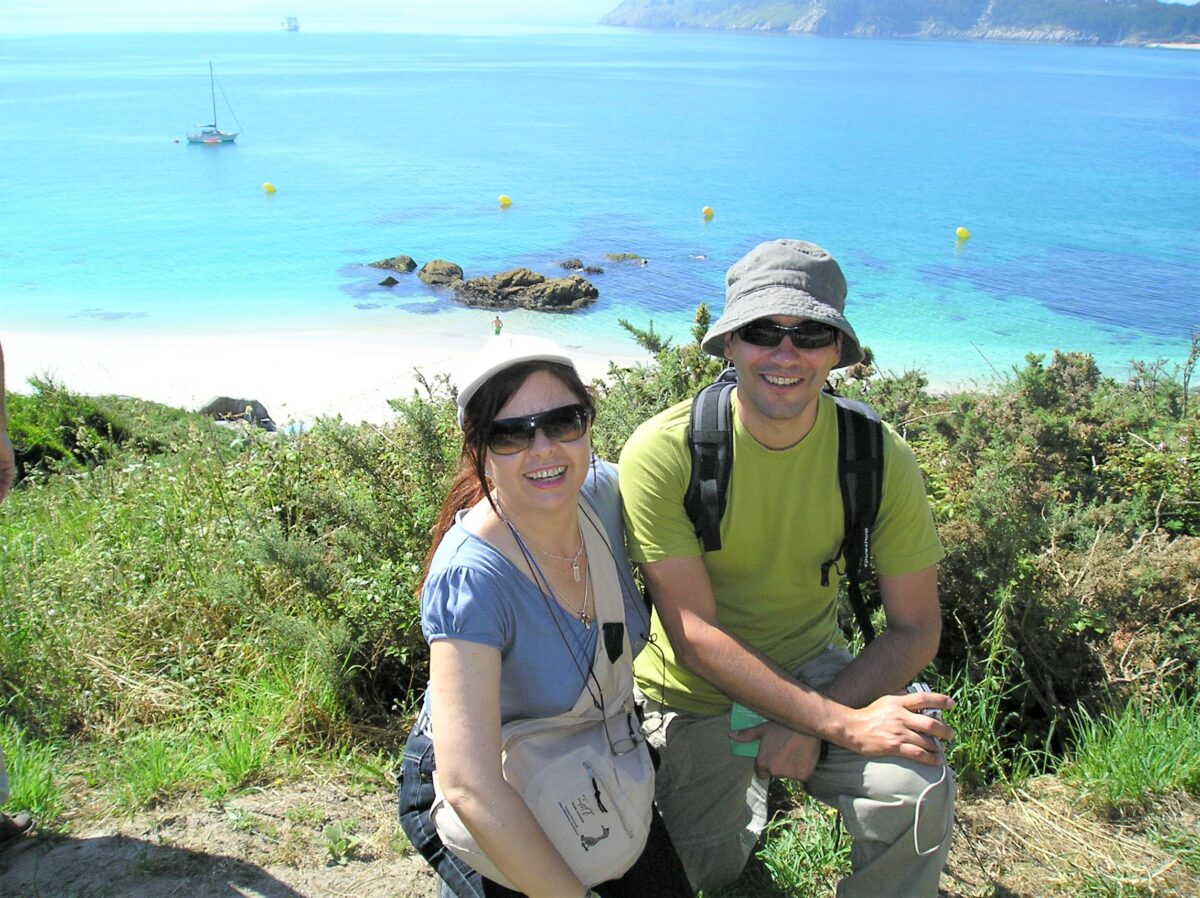
What is the essential skill for your job?
For botanical work it is essential to have a great capacity for observation, to be able to differentiate some characters from others, it is like the work of a police investigator, it is necessary to pay attention to the smallest details in order to reach a good result. But above all, it is necessary to have a great curiosity about everything, not to take anything for granted and to always question many things.
Do you consider yourself a disciple of any botanist in particular?
Yes, of course. I had the good fortune to be a disciple of Dr. Manuel Costa Talens, who was professor of Botany at the Faculty of Pharmacy, as well as director of the Jardí Botànic of Valencia and vice-rector of Science Policy and International Cooperation. It was in his classes that my passion for plant ecology began to grow within me. Attending his classes was like being immersed in a National Geographic documentary, because of all the anecdotes he told us about his constant trips around the world. His classes were always very short for me.
What period of botany would you have liked to live in and why?
I’ve enjoyed living in my time, both as a young woman and now. I have met so many interesting botanists and other scientists that I can’t imagine having lived at any other time. Thanks to this interview, I have been looking back over the course of my life and I have been able to see and remember so many wonderful moments that I would not change for anything else.
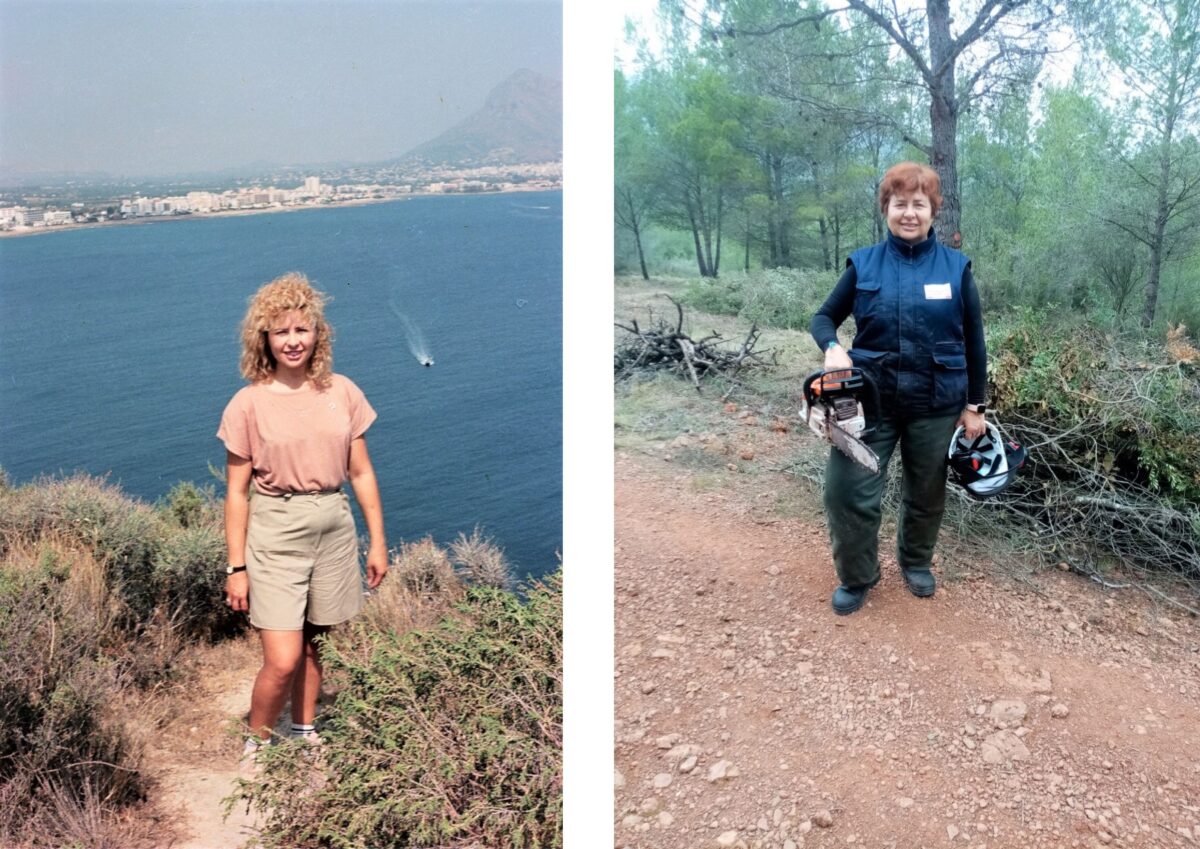
In all these years as a botanist, what is the funniest or most curious situation you have found yourself in?
I have so many anecdotes to tell, I don’t know which one to choose. But there is one very unique one. It is about when I was working in the early years as a Flora Micro-reserves Technician. At that time I accompanied the micro-reserves brigade to mark the perimeter of the micro-reserves using grey metal pegs bearing the coat of arms of the Generalitat and the LIFE project logo. I remember one day when we were marking the Cape San Antonio micro-reserve in Xàbia. The site is very rocky and the vegetation is low Mediterranean forest; we were very close to the edge of the cliff, when suddenly I heard a sound that sounded like the neighing of a horse. I turned to look around to see where the sound was coming from, it was a kind of snorting sound. I saw no one. I asked the men if they had heard the strange sound and they said no. But then I heard it again. At that moment, I looked down and saw with surprise two whales that had just surfaced at the base of the head cliff. I said to the men: look, they are whales! They looked at me incredulously and said: Amparo, you’ve been hit too hard on your head, you talk nonsense! But I insisted, please look again. When they turned their eyes downwards, they could see two whales emerging from the surface, one older and one younger, I guess they must have been mother and daughter. They were astonished, they couldn’t believe what they were seeing. We watched them for quite a while, until when they reached the end of Cape San Antonio, they turned and headed for deep water. It is the most extraordinary sight I have ever seen!
Do you work alone or as part of a team?
I always work in a team, I love being able to share my passion with my colleagues and friends. We all bring something to the table at that moment, the exchange of opinions is fundamental and it’s also a lot of fun. Because as we have always said, we work at what we love and we get paid for it! It’s fantastic to have the privilege of working on what you like and with people who share your interests and likes.






